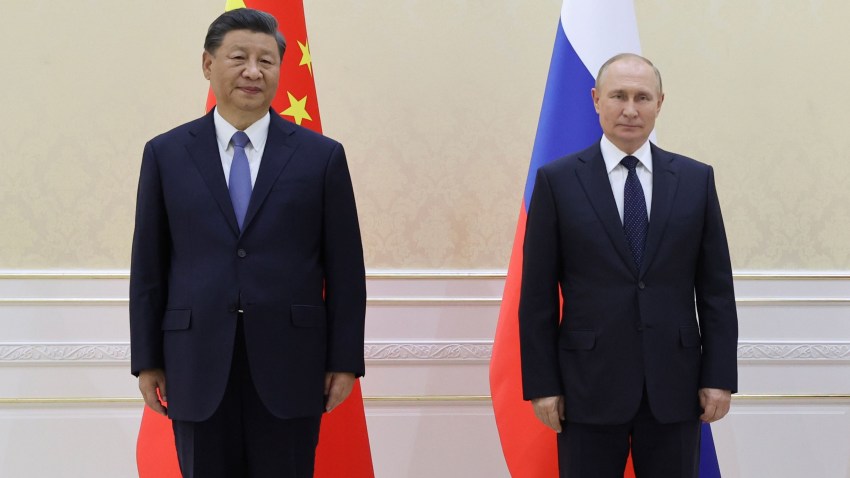Russia’s full-scale invasion of Ukraine in February 2022 upended international politics and scrambled the strategic calculations of many states, few more seriously than China. While benefitting from its deep economic linkages with the United States and European Union, China retains considerable influence in the Global South and has seen its “comprehensive strategic partnership of coordination” with Moscow blossom. Combined, that has put China in prime position to consolidate its influence as a world power. But amid the jolt to global affairs since Russia launched its war against Ukraine, Beijing is now scrambling to limit the fallout of the conflict on its core strategic and economic interests.
Speculation has been rife for several months that Chinese President Xi Jinping would visit Moscow sometime this year, with the Wall Street Journal reporting last week that the trip is likely to take place in the coming months. That visit will follow one by Wang Yi, Beijing’s top diplomat, who last week made his own high-profile trip to Moscow days before the first anniversary of the invasion. Beijing subsequently released a 12-point peace plan on the one-year anniversary of the invasion that, though light on specifics, suggests that China is growing increasingly concerned about the consequences of a prolonged conflict.
Beijing has reason for concern. Russia’s poor performance on the battlefield has undermined Moscow’s value as a strategic partner, even as evidence of Russian war crimes has made Russian President Vladimir Putin a pariah across the West. With the prospects of a clear Russian victory waning by the day, Beijing now faces a dilemma. It could risk a deeper confrontation with Washington by providing more direct support to Moscow, or else remain on the sidelines as a grinding war weakens Russia and solidifies Western unity. It is not lost on Beijing that this unity and the ensuing commitment to bolstering the West’s military capabilities could subsequently be used against China’s own revisionist ambitions vis-á-vis Taiwan.

